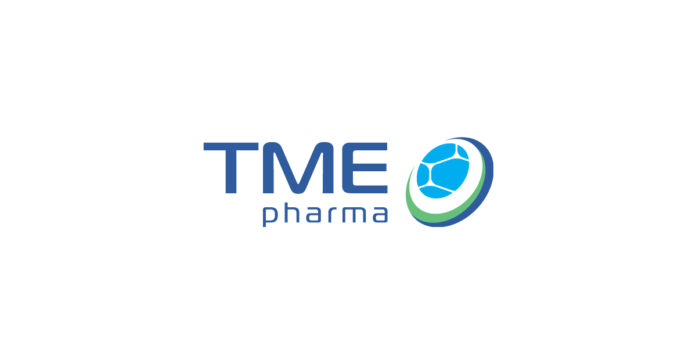BERLIN– TME Pharma N.V., a biotechnology company focused on developing novel therapies for treatment of cancer by targeting the tumor microenvironment (TME), announced today the presentation of updated interim results from the GLORIA Phase 1/2 clinical trial expansion arm with NOX-A12 combined with radiotherapy and bevacizumab (biosimilar Avastin®) in chemotherapy-refractory (MGMT unmethylated) brain cancer (glioblastoma) in a poster presentation at the Society for Neuro-Oncology (SNO) Annual Meeting, held in Tampa, Florida, US from November 16 – 20, 2022. The company additionally disclosed newer data from the expansion arm that became available after the presentation submission cut-off date, as well as results from the completed dose-escalation part of the same clinical trial.
The poster presentation entitled “Dual inhibition of post-radiogenic angio-vasculogenesis by olaptesed pegol (NOX-A12) and bevacizumab in glioblastoma – interim data from the first expansion arm of the German phase 1/2 GLORIA trial” was presented by Dr. Frank A. Giordano. The poster as well as the most recent data highlight the following key points:
- 100% of target lesions treated with the triple combination of NOX-A12, radiotherapy and bevacizumab were reduced by more than 50%.
- 5 of 6 patients (83%) achieved durable partial responses (PR) by mRANO criteria1, which takes into account radiographic response as well as other factors such as clinical condition of the patient. One patient experienced progressive disease (PD) due to distant failure while target lesion control was maintained.
- 2 of 6 patients achieved almost complete tumor size reduction (>99%) where contrast enhancing lesions were detectable but too small to be measured. The data for the second patient achieving >99% decrease in tumor size was obtained shortly after the data cut-off for the poster and will be presented in the webinar on November 22, 2022.
- The mean best sum of perpendicular diameters (SPD) of the tumor response was ‑74.9% (‑53.8% to -99.9%) for target lesion sums.
- The triple combination was well tolerated and safe. No dose-limiting toxicities were observed.
Although data from the expansion arm with bevacizumab suggest that adding a VEGF inhibitor to NOX‑A12 and radiotherapy provide greater clinical benefit over NOX-A12 with radiotherapy alone, the latter already showed signs of clinical efficacy. As presented at ASCO in June 2022, NOX-A12 + RT resulted in tumor size reductions in 9 of 10 patients (90%) of which 4 patients (40%) achieved partial response.
“With the safety and tolerability of this expansion arm now established, and with indications that the addition of bevacizumab could meaningfully improve the efficacy of NOX-A12 and radiotherapy in glioblastoma, we are now looking ahead to the survival data,” said Aram Mangasarian, CEO of TME Pharma. “We expect to report on survival data, including overall survival (OS), in the 2nd quarter of 2023, which will allow us to initiate discussions with regulators about the optimal regulatory path for NOX-A12. We are very encouraged and pleased to see the positive outcomes of this combination and remain convinced of the survival benefit this treatment can bring to brain cancer patients.”
“Assessing the neurological functioning of the six patients using the clinician reported Neurologic Assessment in Neuro-Oncology (NANO) scale and patient reported outcomes offer a way to assess the patients’ quality of life, which is increasingly considered important as an additional read-out for patients’ benefit from treatment” said Dr. Frank A. Giordano, Professor and Chair of the Dept. of Radiation Oncology at the University Medical Center Mannheim and the lead investigator of the GLORIA trial. “The NANO score remained stable and there were improvements in quality-of-life measures in the majority of patients, leading us to expect a positive impact on survival. With the median follow-up to date of 7.9 months, neither median PFS nor median OS have yet been reached in this cohort with known unfavorable outcome; thus we expect this population to outperform the NOX‑A12 + radiotherapy dose escalation cohorts where the median OS was 12.7 months. This makes us confident that the combination of NOX-A12, radiotherapy and bevacizumab will allow deeper and more durable responses, further increasing OS and providing the first significant treatment improvement in decades for these difficult-to-treat patients.”


